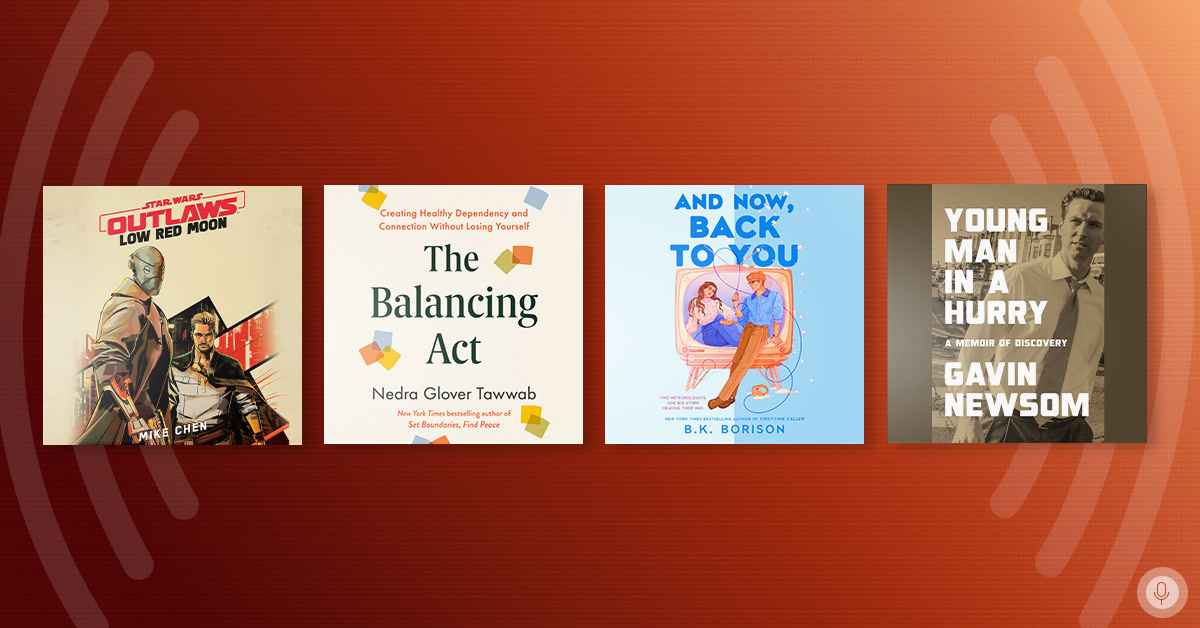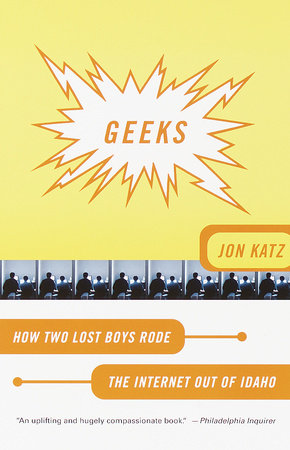TEACHING GUIDE
NOTE TO TEACHERS
Jon Katz’s book, Geeks, has a freshness and an immediacy that will appeal to your advanced readers as well as your reluctant readers. In fact, a segment of the book appeared in Rolling Stone magazine before publication. Geeks looks into the lives of two boys who are on the outside of the social world of high school and captures their perspectives about their lives at a unique period in history.
At first glance, this appears to be a book about technology. Teachers who did not grow up with websites, e-mail, jpegs, gifs and java (unless it was a cool way of saying coffee) might be nervous about leading a classroom discussion on such topics. But Geeks is less about RAM and hard drives, and more about the willingness of desperate people to take a chance. It’s the story of adventurers, pioneers, and gamblers.
Jon Katz was a reporter who wanted to write a book about kids on the Internet. When he got an e-mail from teenager and self-proclaimed geek, Jesse Daily, something in it compelled him to drop the idea of a survey and focus the book on one individual. Katz quickly lost his professional detachment and advised Jesse and his friend Eric as they struggled to understand who they were and who they might become. The boys set off on an odyssey of self-discovery with a former teacher, Mr. Brown, and Katz as their guides. Jesse and Eric credit Mr. Brown for saving them in high school by creating a safe haven for the boys to escape the pressures of the social scene. They stayed in touch with Mr. Brown even after they graduated.
Geeks is right on time. As we move farther away from the tragedies at Columbine High School and continue to learn of high school shootings from angry, frustrated, isolated young people, we must read Geeks in order to understand what life is like for someone who is outcast for being different.
TEACHING IDEAS
Preparing to read
Katz begins the book with seven definitions for the word geek. The ascendency of Geeks in our society through our reliance on computer technology has put the issues of difference at center stage. Students should be encouraged to examine themselves and their actions on a daily basis. What does it mean to pick on someone who is different? How does it affect them? Students need to pay special attention to their feelings toward Jesse and Eric. At the beginning of the book, Jesse is guarded toward Katz and others. By the end of the story, we feel as if we have a new friend we might just drop an e-mail to. All this because we’ve taken the time to get to know Jesse through the book. Might this approach work with someone in school who’s labeled an outsider? What if more people invested themselves in the lives of lost boys or girls?
DISCUSSION AND WRITING
Questions for Discussion and Comprehension
The questions and discussion topics that follow are designed to guide students and teachers as they approach the issues raised in Geeks.
Introduction
How does the ascension of Geeks correlate with the rise of the Internet and the world wide web?
How does Katz define the notion of other?
Why do people need Geeks today?
What happens in the radio station which changes Katz’s notions about Geeks?
Who is Louis Rossetto and why is he a pioneer?
What was it about Jesse’s e-mail that intrigued Katz so much?
Chapter One: First Encounter
Where does Jesse work?
What comparison does Katz make between computers and cars?
Katz has a notion of parenting. How is that notion different from the world in which Jesse and Eric live?
Jesse says "The Net is my safety. It’s my community. It’s not a substitute for life for me. It is life." How does this play into daily decisions that Jesse and Eric make?
How do Eric and Jesse make extra money?
Why do the boys ride bikes?
How does the loss of the car propel the boys into action?
Chapter Two: The Cave
Describe Eric and Jesse’s apartment. How do they work on their machines?
How did Eric grow up?
How did Jesse grow up and what is the mantra that he has developed because of his upbringing?
Chapter Three: The Geek Club
How did the Geek Club start?
What does it mean tobe idea starved?
Describe each boy’s approach to his frustrations?
What does Jesse doin high school before he joined the Geek Club?
What happens when the two popular kids show up during a session of the Geek Club?
Chapter Four: Leave Fast
What does it mean that the boys only have $10 extra in their budget for the move to Chicago?
How did they arrange everything?
Jesse and Katz enter a discussion of intellectual and material property. What is free according to Jesse?
"the ascendant geek culture [is] in increasingly direct conflict with such institutions as the legal and medical professionsÉ" (p. 42) Why is this significant?
Why did they chose Chicago?
What are the journalistic boundaries that Katz explains to Jesse?
How does Katz step over those boundaries?
Chapter Five: The Trip
What sight greets the boys in Chicago that they hadn’t expected?
What conflict does the tie represent for Jesse?
What idea does Jesse mention for the first time?
What shock dothe boys receive in their phone bill?
How do they resolve the issue?
Even though the boys made it out of Idaho and have jobs in Chicago, how are their lives basically the same?
Chapter Six: Thanksgiving
How do the boys and Katz celebrate Thanksgiving?
What book does Eric buy?
How is their apartment responsible for their isolation?
In Jesse’s e-mail to Katz, he changes his mind about something?
How is this pattern of thought echoed from what we already know about Jesse?
Chapter Seven: The More Things Change
How is the Dickens’ quote significant in Jesse’s life?
Show examples about how a geek’s passion for knowledge crosses traditional culture. What is cartoon-ish about Eric and Jesse’s office jobs?
What two major events are the boys oblivious to?
What concerns does Katz have about the boys’ personal lives?
Who stays with the boys in their apartment?
What is this guest’s predicament?
What does Jesse tell Katz about his visit tothe University of Chicago?
Chapter Eight: Escape from Richton Park
How dothe boys afford the move toa funkier part of town?
What does the move get them?
How are the boys taking advantage of their new domestic life?
What does Jesse begin toconsider more seriously?
What does Jesse do to convince the Dean of Admission that he would be a good student? How does Katz help?
Chapter Nine: The Dean
How does Katz feel about Jesse’s application?
"Colleges, though most have invested in massive bandwidth togive their students easy access tothe Net, remain collective enterprises. You study and live and socialize in a community." (p. 118) How is this statement difficult considering the way Jesse and Eric have spent the last few years of their lives?
What does Jesse spend his money on?
How the does Columbine massacre affect Jesse and Katz?
What is Jesse’s prediction about the way Geeks will be treated in the wake of Columbine?
What does the Dean of Admissions want Jesse to do?
Chapter Ten: Into the Hellmouth
What is Jesse’s prediction about who will be blamed for Columbine?
How does Jesse describe his sympathy for the students at Columbine?
What is the Hellmouth?
What is the subject of the article that Katz writes?
What is Jesse’s reaction to it?
Chapter Eleven: Don’t Expect Miracles
What doKatz and Jesse think about while waiting for news from the University of Chicago?
What news does Jesse receive and how is he newly responsible for his own life as well as the lives of others?
What is "the ticket in" for Jesse?
Writing and Related Activities
Writing
1) "Technology is just the ticket in, the magic is in the discontent and imagination, never being satisfied, and being creative about it. Everyone can use a computer, not everyone is a geek." (Jesse’s last e-mail toKatz, p. 179) How is this statement an example of Jesse’s growth?
2) In his acceptance letter from the University of Chicago, the last paragraph reads, "You have the chance tobe a part of a school with a glorious history and an exciting present. We look toyou tohelp us grow, togrow with us, and tobe part of a tradition that elevates us all." (p. 177) Discuss the notion of privilege and responsibility implied in the acceptance letter.
3) There is a phrase in popular psychology called a "geographical cure." It’s the notion that if you have problems, you can move away from them. Jesse and Eric move away from Idaho, but discover many of their social problems were brought along. Discuss how each grows up, becomes more outgoing, searches for healing rather than just running away.
4) Jesse credits Mr. Brown and The Geek Club for saving his life. What are the elements of the Geek Club that make it so powerful? How does it give the boys something that they lacked before? What dothey take from it and use in their lives thereafter?
5) At the University of Chicago, Katz notices a change in Jesse he hadn’t seen before. "He was surrounded by a community of discontents, oddballs, free thinkers, and free spirits." (p. 203) Why is this community the goal for all outsiders? How can we make all of our institutions as accepting and accommodating as the University of Chicago is for Jesse?
6) Jesse and Eric realize that in order to progress tothe best geek jobs, they need college educations. Is this an idea forced on them by Katz, or does he suggest it and they investigate the truth of it. Is college necessary for Jesse? What event propels him toward the necessity of a college education?
7) "You start to get angry, then you start to hate. They just slice away your humanity, piece by piece, and the hate becomes bigger and bigger, until there’s nothing left but hate. If you don’t have good friends or a teacher or a parent to talk to, then one day, there’s just no humanity left. You’re all hate. You have no connection to the world. And so you snap." Jesse made this statement after learning of the Columbine massacre. Katz sees Jesse and Eric falling into similar categories as the suicidal Columbine gunmen. How does society recognize children and students who are in need, and not further alienate them with a type of profiling that is similar to a technological witch hunt?
BEYOND THE BOOK
Beyond the Book
1) In the novel, Great Expectations, Charles Dickens writes of a boy’s good fortune. What parallels can you draw between the lives of Jesse and Eric, and the characters in Great Expectations? Who are the anonymous benefactors in each story and what effect dothey have on the boys’ lives?
2) Jon Katz begins Geeks as a journalist, studying, investigating, learning and writing about twostrangers from Idaho. Through the course of the book, his position changes. Why are there journalistic boundaries and what happens tothe Truth when a reporter has an emotional connection to his subjects?
3. "Geeks was never primarily a book about computers, the Net, technology, or even Geeks. It was — is — a very human, almost classically American story about two plucky, brainy, rebellious outsider kids from a little godforsaken town who headed tothe big city to make their fortunes." (p. 206) Discuss other Americans who used new advances in technology to create great gains for society.
4. Look up the Napster ruling on-line. Jesse discusses never buying software or music. What is the difference between intellectual and material property? Discuss how our bedrock attitudes about property are undergoing seismic changes because of the Internet.
5. Early in the book, Jesse states that college was never an expectation for him. Is college an expectation for you? What kind of pressure does that apply to your life? What possibilities does it open and what doors may it close to you? Do you think you would end up being a better student if you lived on your own before going to college as Jesse and Eric do?
6. Katz asks Jesse if his life has been painful. Jesse responds by quoting from David Copperfield. (p. 79) Does the quote resonate with you? How does Jesse’s ability to make painful things so absurd that they no longer matter a useful coping mechanism? What is it necessary for Jesse, and the rest of us, to do once the painful years are gone?
ABOUT THIS GUIDE
David Scott is a former teacher. He is a publishing poet and a free-lance writer. He lives in Delaware with his wife, novelist Julianna Baggott, and their three children. He plays soccer and loves pizza.
×





















